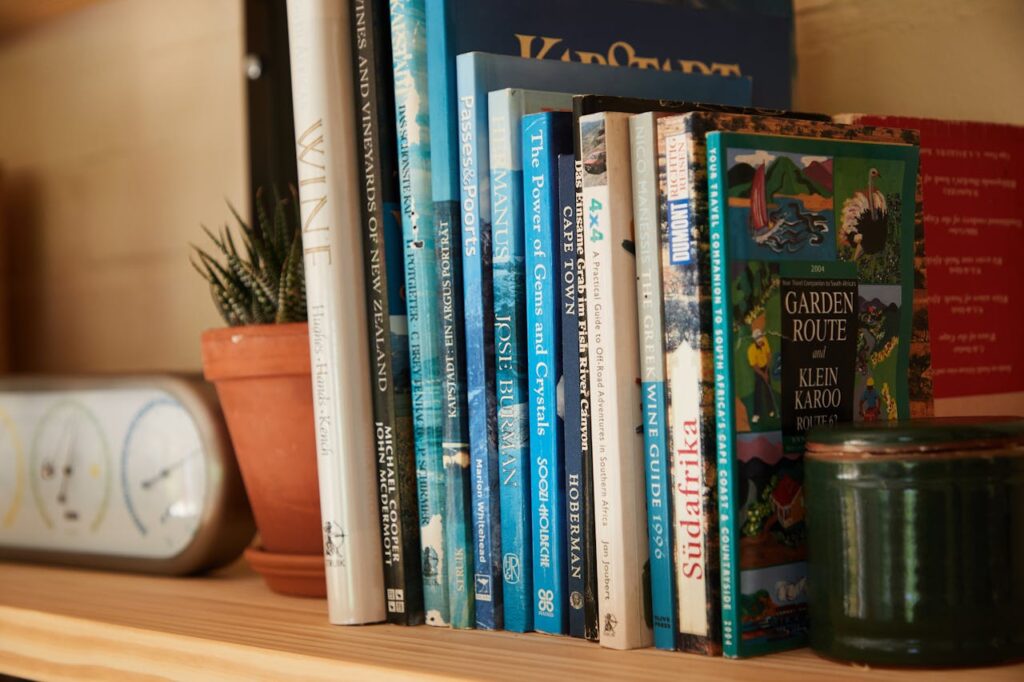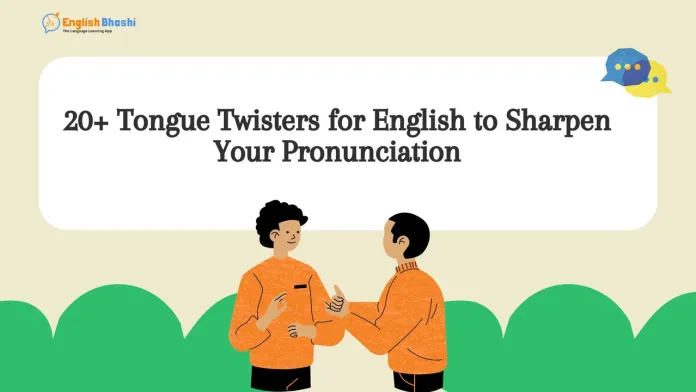Tongue Twisters for English are not just playful phrases; they serve as fantastic tools for enhancing your pronunciation and articulation in English.
Whether you’re a language learner looking to improve your skills or a native speaker wanting to refine your clarity, Tongue Twisters for English can be both entertaining and beneficial.
This article explores fun Tongue Twisters for English that will challenge your vocal cords and help you become more confident in your English pronunciation.

Why Tongue Twisters for English?
Tongue Twisters for English are a playful yet effective way to improve English pronunciation. They challenge speakers with intricate sounds, helping to refine articulation and clarity. Practicing Tongue Twisters for English enhances your ability to distinguish between similar phonemes, which is especially beneficial for non-native speakers.
Additionally, they build fluency by encouraging a smooth, rhythmic speech pattern. As you repeat these phrases, you develop muscle memory for correct pronunciation, making it easier to apply these skills in everyday conversation.
Tongue Twisters for English also sharpen listening skills; by focusing on the sounds, you become more attuned to nuances in spoken English. Plus, they can be a fun and engaging way to practice with friends or language partners, turning a potentially daunting task into a lighthearted challenge.
Incorporating Tongue Twisters for English into your language learning routine not only boosts your confidence but also adds variety to your practice. Whether you’re working on specific sounds or simply aiming to speak more clearly, Tongue Twisters for English are a delightful tool to have in your linguistic toolkit. Use different resources, games and worksheets to practice online.
Best Tongue Twisters for Kids
- Birdie birdie in the sky laid a turdie in my eye. If cows could fly I’d have a cow pie in my eye.
- A big bug bit the little beetle but the little beetle bit the big bug back.
- How many yaks could a yak pack, pack if a yak pack could pack yaks?
- Double bubble gum, bubbles double.
- Thirty-three thirsty, thundering thoroughbreds thumped Mr Thurber on Thursday.
- Gobbling gargoyles gobbled gobbling goblins.
- The thirty-three thieves thought that they thrilled the throne throughout Thursday.
- A big black bear sat on a big black rug.
- If two witches would watch two watches, which witch would watch which watch?
- If a dog chews shoes, whose shoes does he choose?
- I saw a saw that could saw out any other saw I ever saw.
- Nine nice night nurses nursing nicely.
- How much ground would a groundhog hog, if a groundhog could hog ground? A groundhog would hog all the ground he could hog if a groundhog could hog ground.
- To sit in solemn silence in a dull, dark dock, in a prickly pot with a lifelong lock, playing with bees that give you short, sharp shocks.
- Picky people pick Peter Pan Peanut-Butter, ’tis the peanut-butter picky people pick.
- Brisk brave brigadiers brandished broad bright blades, blunderbusses, and bludgeons—balancing them badly.
- Babbling baby boys blurted boldly.
- I’m a mother pheasant plucker; I pluck mother pheasants.
- The two-toed tree-toad tried to win the three-toed she-toad’s heart
Short Tongue Twisters for Kids
- Proper copper coffee pot
- Zebras zig and zebras zag
- Specific Pacific
- Willie’s really weary
- Octopus ocular optics
- Red leather, yellow leather
- Bad money, mad bunny
- Freshly-fried flying fish
- Tommy Tucker tried to tie
- Red lorry, yellow lorry
- Fresh French fried fly fritters
- Red Brick, blue Bick
- Flashy fish massage
- Selfish shellfish
- Greet with glee
- Ed had edited it
- She threw three balls
- Flash place
- Sheena leads, Sheila needs
- Russian Rob runs
- Santa’s short suit shrunk
- Pirates’ private plank
- Rudder valve reversals
- Argyle gargoyle
- Six slippery snails slid slowly seaward
- Dark dusty disks.
Easy Tongue Twisters for Kids
- She sees cheese
- The blue bluebird blinks
- He threw three free throws
- Eleven benevolent elephants
- Nine nimble noblemen nibbling nuts
- Betty and Bob brought back blue balloons from the big bazaar
- Fred fed Ted bread and Ted fed Fred bread?
- Really leery, rarely Larry
- Scissors sizzle, thistles sizzle
- Kitty caught the kitten in the kitchen
- Clean clams crammed in clean cans
- Five frantic frogs fled from fifty fierce fishes
- Wayne went to Wales to watch walruses
- Six sleek swans swam swiftly southwards
- The great Greek grape growers grow great Greek grapes
- Busy buzzing bumblebees

Student Tongue Twisters for English
- Peter Piper picked a peck of pickled peppers.
- She sells sea shells by the sea shore.
- How can a clam cram in a clean cream can?
- Betty Botter bought some butter, but she said the butter’s bitter.
- Fuzzy Wuzzy was a bear. Fuzzy Wuzzy had no hair.
- Red lorry, yellow lorry.
- Unique New York, New York’s unique.
- I saw Susie sitting in a shoeshine shop.
- Can you can a can as a canny can can?
- The sixth sick sheik’s sixth sheep’s sick.
- A big black bug bit a big black bear.
- Eleven benevolent elephants.
- Six slippery snails slid slowly seaward.
- If two witches were watching two watches, which witch would watch which watch?
- The thirty-three thieves thought that they thrilled the throne throughout Thursday.
- Sheena leads, Sheila needs.
- I wish to wish the wish you wish to wish.
- Red beds, blue beds.
- Toy boat, toy boat, toy boat.
- Which wristwatches are Swiss wristwatches?
- Crisp crusts crackle and crunch.
- Fred fed Ted bread, and Ted fed Fred bread.
- A proper copper coffee pot.
- I saw a kitten eating chicken in the kitchen.
- Friendly Frank flips fine flapjacks.
- The soldier decided to soldier on.
- Six socks, six slocks, six slicks.
- You know New York, you need New York, you know you need unique New York.
- Can you keep a secret? I can keep a secret.
- If a dog chews shoes, whose shoes does he choose?
- A cat sat on a mat.
- Seven slippery seals slid slowly southward.
- If two red robins were to roost right now, where would the two red robins go?
- There once was a man from Peru who dreamed he was eating his shoe.
- The blue bluebird blinks.
- A black bug bleeds black blood.
- I wish you would watch your step, while I wish you would not watch my step.
- She sifted thistles through her thistle sifter.
- Willie’s really warm wiener.
- Sam’s shop stocks short-spotted socks.
- If a fish swims in a fishbowl, is it a fishbowl fish?
- Six sleek swans swam swiftly southwards.
- Betty bought a bit of butter, but the butter was bitter.
- How much wood would a woodchuck chuck if a woodchuck could chuck wood?
- Charlie chews chewy chocolate chips.
- If you want to catch a fish, just fish with a fishy fish.
- A man named Ned had a big red bed.
- Picky people pick Peter Pan peanut butter.
- Silly Sally swiftly shoed seven silly sheep.
- Freshly fried flying fish.
Difficult Tongue Twisters For Adults
| Tongue twister words in English | IPA |
| A loyal warrior will rarely worry why we rule. | / ə ˌlɔɪəl ˈwɔːriər ˌwi:l ˈrerli ˈwɜːri ˈwaɪ wi ˈruːl / |
| A skunk sat on a stump and thunk the stump stunk, but the stump thunk the skunk stunk. | / ə ˈskəŋk ˈsæt ˈɑːn ə ˈstəmp ənd ˈθənk ðə ˈstəmp ˈstəŋk bət ðə ˈstəmp ˈθənk ðə ˈskəŋk ˈstəŋk / |
| Brisk brave brigadiers brandished broad bright blades, blunderbusses, and bludgeons—balancing them badly. | / ˈbrɪsk ˈbreɪv ˌbrɪɡəˈdɪəz ˈbrændɪʃt brɔ:d ˈbraɪt ˈbleɪdz ˈblʌndəbʌsɪz ənd ˈblʌdʒənz ˈbælənsɪŋ ðəm ˈbædli / |
| Fresh French fried fly fritters. | / ˈfreʃ ˈfrentʃ ˈfraɪd flaɪ ˈfrɪtəz / |
| He threw three free throws. | / ˈhi: ˈθruː θri: ˈfri: ˈθroʊz / |
| How much ground would a groundhog hog if a groundhog could hog ground? | / ˌhaʊ ˈmʌtʃ graʊnd wʊd ə ˈɡraʊndˌhɑːɡ ˈhɑːɡ ɪf ə ˈɡraʊndˌhɑːɡ kəd ˈhɑːɡ ˈɡraʊnd / |
| I slit the sheet, the sheet I slit, and on the slitted sheet I sit. | / ˈaɪ sˈlɪt ðə ʃi:t ðə ʃi:t ˈaɪ sˈlɪt ənd ˈɑːn ðə slitted ʃi:t ˈaɪ ˈsɪt / |
| If you must cross a coarse cross cow across a crowded cow crossing, cross the cross coarse cow across the crowded cow crossing carefully. | / ɪf ju məst ˈkrɒs ə ˈkɔːrs ˈkrɒs ˈkaʊ əˈkrɒs ə ˈkraʊdəd ˈkaʊ ˈkrɒsɪŋ ˈkrɒs ðə ˈkrɒs ˈkɔːrs ˈkaʊ əˈkrɒs ðə ˈkraʊdəd ˈkaʊ ˈkrɒsɪŋ ˈkerfəli / |
| Imagine an imaginary menagerie manager managing an imaginary menagerie. | / ˌɪˈmædʒən ən ˌɪˈmædʒəˌneri məˈnædʒəri ˈmænədʒər ˈmænədʒɪŋ ən ˌɪˈmædʒəˌneri məˈnædʒəri / |
| Irish wristwatch, Swiss wristwatch. | / ˈaɪˌrɪʃ ˈrɪˌstwɑːtʃ ˈswɪs ˈrɪˌstwɑːtʃ / |
| Lesser leather never weathered wetter weather better. | / ˈlesər leðər ˈnevər ˈweðərd ˈwetər ˈweðə ˈbetər / |
| Luke’s duck likes lakes. Luke Luck licks lakes. Luke’s duck licks lakes. Duck takes licks in lakes Luke Luck likes. | / ˈluːks ˈdək ˈlaɪks ˈleɪks ˈluːk ˈlək ˈlɪks ˈleɪks ˈluːks ˈdək ˈlɪks ˈleɪks ˈdək ˈteɪks ˈlɪks ɪn ˈleɪks ˈluːk ˈlək ˈlaɪks / |
| Pad kid poured curd pulled cod. | / ˈpæd ˈkɪd ˈpɔːrd ˈkɝːd ˈpʊld ˈkɑːd / |
| Red lorry, yellow lorry. | / ˈred ˈlɔːri ˈjeloʊ ˈlɔːri / |
| Rory the warrior and Roger the worrier were reared wrongly in a rural brewery. | / ˈrɔːri ðə ˈwɔːriər ənd ˈrɑːdʒər ðə ˈwɜːriər wər ˈrɪrd ˈrɒŋli ɪn ə ˈrʊrəl ˈbruːəri / |
| Selfish shellfish. (Repeat many times) | / ˈselfɪʃ ˈʃelfɪʃ / |
| Send toast to ten tense stout saints’ ten tall tents. | / ˈsend toʊst tə ˈten ˈtens ˈstaʊt ˈseɪnts ˈten ˈtɒl ˈtents / |
| She saw Sherif’s shoes on the sofa. But was she so sure those were Sherif’s shoes she saw? | / ˈʃi: sɔ: sherif’s ˈʃuːz ˈɑːn ðə ˈsoʊfə bət wəz ˈʃi: soʊ ʃʊə ðoʊz wər sherif’s ˈʃuːz ˈʃi: ˈsɔː / |
| She sells seashells by the seashore. | / ˈʃi: ˈselz ˈsiːˌʃelz ˈbaɪ ðə ˈsiːˌʃɔːr / |
| Six sick hicks nick six slick bricks with picks and sticks. | / ˈsɪks sɪk ˈhɪks ˈnɪk ˈsɪks sˈlɪk ˈbrɪks wɪθ ˈpɪks ənd ˈstɪks / |
| Six sleek swans swam swiftly southwards. | / ˈsɪks sˈliːk ˈswɑːnz ˈswæm ˈswɪftli ˈsaʊθwədz / |
| Susie works in a shoeshine shop. Where she shines she sits, and where she sits she shines. | / ˈsuːzi ˈwɝːks ɪn ə ˈʃuːˌʃaɪn ʃɒp ˈhwer̩ ˈʃi: ˈʃaɪnz ˈʃi: ˈsɪts ənd ˈhwer̩ ˈʃi: ˈsɪts ˈʃi: ˈʃaɪnz / |
| The thirty-three thieves thought that they thrilled the throne throughout Thursday. | / ðə thirty-three ˈθiːvz ˈθɔ:t ðæt ˈðeɪ ˈθrɪld ðə ˈθroʊn θruːˈaʊt ˈθɝːzdeɪ / |

Tips for Practicing Tongue Twisters for English to Improve Pronunciation in English
- Start Slow: Begin by saying the tongue twister slowly to ensure each sound is pronounced clearly. Focus on articulation before increasing your speed.
- Break It Down: Divide the phrase into smaller sections. Master each part individually before attempting to combine them into the full tongue twister.
- Use a Mirror: Practicing in front of a mirror can help you observe your mouth movements, enabling you to adjust and improve your articulation.
- Record Yourself: Use your phone or computer to record your attempts. Listening to the playback allows you to identify areas that need improvement.
- Repeat Regularly: Consistency is key. Set aside a few minutes each day to practice different Tongue Twisters for English, making it a fun part of your language routine.
- Focus on Trouble Sounds: Identify which sounds are particularly challenging for you and select Tongue Twisters for English that emphasize those phonemes for targeted practice.
- Practice with a Partner: Team up with a friend or language partner. Take turns reciting Tongue Twisters for English and provide constructive feedback to each other.
- Incorporate Rhythm: Pay attention to the rhythm and flow of the tongue twister. Clapping or tapping a beat can help you maintain a consistent pace.
- Challenge Yourself: Gradually increase the complexity of the Tongue Twisters for English you practice. Move from simpler phrases to more difficult ones as you gain confidence.
- Have Fun: Enjoy the process! Laughing and being playful while practicing can reduce stress and make learning more enjoyable.
Funny Tongue Twisters for English
- One smart fellow, he felt smart, two smart fellows, they felt smart, three smart fellows, they all felt smart.
- I slit the sheet, the sheet I slit, and on the slitted sheet I sit.
- Rubber baby buggy bumpers.
- A flea and a fly flew up in a flue. Said the flea, “Let us fly!” Said the fly, “Let us flee!” So they flew through a flaw in the flue.
- Birdie birdie in the sky laid a turdie in my eye. If cows could fly I’d have a cow pie in my eye.
- If two witches were watching two watches, which witch would watch which watch?
- Mr. See owned a saw, and Mr. Soar owned a seesaw. Now See’s saw sawed Soar’s seesaw before Soar saw See.
- One-One was a racehorse; Two-Two was one, too. When One-One won one race, Two-Two won one, too.
Benefits of Tongue Twisters for English in English
- Improved Pronunciation: Tongue Twisters for English challenge speakers to articulate difficult sounds, enhancing overall pronunciation skills.
- Enhanced Articulation: Regular practice helps learners focus on clear enunciation, leading to better speech clarity.
- Increased Fluency: They promote smoother, more rhythmic speech patterns, boosting confidence in speaking.
- Targeted Sound Practice: Specific Tongue Twisters for English focus on particular phonemes, helping learners overcome challenges with certain sounds.
- Auditory Training: Listening and repeating Tongue Twisters for English sharpens listening skills, making it easier to catch nuances in spoken English.
- Muscle Memory Development: Frequent repetition builds muscle memory for correct pronunciation, aiding in everyday conversation.
- Engagement and Fun: Tongue Twisters for English add a playful element to language practice, reducing stress and making learning enjoyable.
- Social Interaction: Practicing with friends or in groups fosters collaboration and friendly competition, enhancing the learning experience.
- Cognitive Benefits: The mental challenge of mastering Tongue Twisters for English can improve concentration and memory skills.
- Versatile Learning Tool: Suitable for all ages, they can be integrated into various learning contexts, from classrooms to casual practice.
Conclusion
Tongue Twisters for English are not only a delightful way to play with language, but they also serve as valuable tools for improving your English pronunciation.
By regularly practicing these ten fun phrases, you’ll find yourself speaking more clearly and confidently. So gather some friends, challenge each other, and enjoy the journey toward sharper pronunciation! Happy twisting!
To Read More Blogs: Click Here
Frequently Asked Questions
What are tongue twisters?
Tongue twisters are phrases or sentences designed to challenge your pronunciation and articulation by featuring similar sounds or difficult combinations of words.
How do tongue twisters help with pronunciation?
They improve pronunciation by requiring precise articulation of challenging sounds, helping to develop muscle memory for clearer speech and enhancing overall fluency.
Can tongue twisters benefit non-native English speakers?
Yes, they are especially beneficial for non-native speakers as they help distinguish between similar phonemes, improving both confidence and clarity in spoken English.
How should I practice tongue twisters effectively?
Start slowly, focus on clear enunciation, and gradually increase your speed. Repeating them regularly and recording yourself can also aid improvement.
Are there any specific tongue twisters recommended for beginners?
Beginners can start with simpler tongue twisters like “Red lorry, yellow lorry” or “She sells sea shells by the sea shore” before progressing to more complex phrases.


